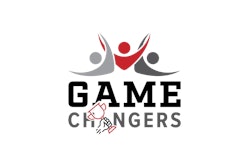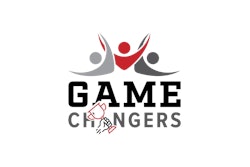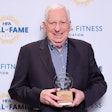Copyright 2017 Gannett Company, Inc.
All Rights Reserved
USA TODAY
Royce White
Royce White left the NBA three years ago amid demands for a better mental health initiative from the league. Today, playing basketball in Canada, he speaks bluntly about mental illness and salts his conversation with colorful metaphors and off-color language.
"It's not about the NBA," he says. "If (expletive) Walmart didn't have a (reasonable mental health) policy, I would have done the same thing there, too."
He grew up in Minneapolis, largely raised by a single mother and grandmother. Speaking his mind always came naturally.
"I didn't have men around me growing up who saw having anxiety as weak or not tough enough," White says. "I grew up with a lot of diversity. Instead of having that traditional one-male role model, I was allowed to have many. And maybe it's just where I'm from, but that whole masculinity (stereotype) -- men can't show weakness (crap) -- wasn't around."
One of White's male role models was his fiery high school coach, Dave Thorson, now an assistant coach at Drake, who led White to therapy. An in-school family practitioner ultimately diagnosed him with generalized anxiety disorder and obsessive compulsive disorder. Since, he has embraced his illnesses rather than hide them in silence.
"The million-dollar question is, 'Does what you go through make you better or worse?'" White says. "I actually look at my anxiety as a blessing."
White, the Houston Rockets' first-round draft choice (16th pick overall) in 2012, made headlines when he asked for accommodations to address panic attacks when he flew on planes. He had made 20 plane trips in a season while at Iowa State; playing in the NBA was going to require something closer to 100 flights. And the drugs he took to calm his fears affected his energy in games and practices.
"It's been painted as me wanting special treatment because of anxiety," White says. "No, I'm saying I need the same type of support as anyone who is struggling. Call it whatever the hell you want to call it. There are specific injury doctors for players" with bum knees and sprained ankles.
White says when he requested an individual doctor, NBA officials told him if they made an accommodation for him, they'd have to do it for 450 players. He played in three NBA games -- zero points for the Sacramento Kings -- as he bounced around the NBA and its developmental league for several seasons.
Kathy Behrens, NBA president of social responsibility and player programs, offers no comment on White's case specifically, other than to say the league has "great respect for Royce speaking about his struggles." She says the NBA is not new to the issue but has "a growing understanding of the importance of the subject." She says players currently have access to mental health professionals through the player assistance program.
Last season White played for the London (Ontario) Lightning of the National Basketball League of Canada, where he is the reigning league MVP and the Lightning are the reigning champion. His last affiliation with the NBA was the Los Angeles Clippers' Summer League team in 2015.
"This isn't just about me in the NBA," White says. "You hear all the time about mental health stigma and people being ashamed. Well, there are people across the country who need help, say they need help and aren't getting it. We should be talking about them, too."
Michael Phelps
For most of his solid-gold life, Michael Phelps saw himself in much the same way as the outside world did.
"I saw myself as a swimmer and nothing else," he says. "I didn't know who I really was. And neither did anybody else. At the age of 30, I found myself. And I decided I wanted to show the world not Michael Phelps the swimmer, but who I really was."
Phelps is 32, and he wants the world to see him as husband, father and, yes, history's most decorated Olympian -- but also as a depression sufferer.
"It's good for athletes to be open about who they are and for people to see we're far from perfect," Phelps says. "We're not gods. I'm human like everybody else."
After opening up about his issues, he found he could help others while helping himself. "Once I started talking about my struggles outside the pool, the healthier I felt," he says. "Now I have kids and adults come up to me and say they were able to open up because I was open about my life."
Phelps retired after the 2012 Summer Games in London -- or so he said -- but ended up coming back for a last hurrah in Rio in 2016, this time with his infant son, Boomer, and his newlywed wife, Nicole, to cheer him on. Now he swears he's really retired. And he doesn't have to worry about what's next; his calling as an advocate for mental health found him.
"My talent was in the swimming pool, but it's led me to something else in life," Phelps says. "It's a duty. It's an honor to talk about mental health. But I'm really just being my authentic self, sharing my story."
Jerry West
West is Mr.Clutch. He's The Logo. A master architect, building teams behind the scenes.
He's also, at 79, a life-long sufferer of depression. Or, as he calls it, the dark place.
"This is something that doesn't go away, this depression," West says. "When I go through it, it's almost always based on my (low) self-worth and self-esteem."
West sees his suffering less as an illness and more as a product of a tormented childhood of abuse at the hands of his father. That's part of why West turned to basketball as a kid -- a "misfit with no confidence," in his words -- in West Virginia. It was a safe haven where he could build confidence.
"Everyone is driven by different things in life," West says. "To some degree, based on some of the things I saw growing up, I was looking for an escape. I was just looking for something that I'd be appreciated for."
Sometimes he played all by himself in a fantasy world in which he always splashed a game-winning buzzer-beater. "For anyone who saw me," he says, "they probably said, 'My God, this kid is crazy.'"
He emerged from childhood sanctuary to be one of the greatest players in history. The darkness never left him, though. "I feel that same sadness at times now," he says.
He took his West Virginia Mountaineers to the championship game of the NCAA tournament, where they lost. His Los Angeles Lakers made the NBA Finals nine times -- and lost eight.
"I've learned way more in my life through failure than I ever did from success," he says. He didn't feel the elation he thought he would when the Lakers won the NBA title at last in 1972. "All I could do right then," he says, "was go back to the other losses."
Team camaraderie buoyed him during his playing days. As a team executive -- with the Lakers, Memphis Grizzlies, Golden State Warriors and, newly, the Los Angeles Clippers -- he often is alone in his day-to-day operations. "You're the judge, jury and executioner," he says.
The kid who wanted to be a hero, sinking all those game-winners in imaginary games, says he never wanted credit for his successes as an executive.
"You'll never see me on a (championship) podium or in a picture," West notes. "It was never about me. Yet, on the other hand, there are times when I'd be down and out, and you feel like you'd want someone to come up and say, 'Hey, you're pretty good at what you're doing.' That's when the (depression) kicks in."
West says he thinks he's able to see talent and character through a different lens than other executives.
"Some of these kids, these players, they're survivors," he says. "In many cases I thought I was a survivor. That's who I'm attracted to. Someone who's been through something."
Allison Schmitt
Schmitt executed a flip turn, as the swimmer had done thousands of times before, as she competed in an event in Austin in 2015. And then, out of nowhere, midway through the 400-meter freestyle, she quit.
"That last 200 meters I was like, (expletive) this," she says. "I knew I gave up, but I didn't know why."
The answer, as it turned out, was what she calls "the invisible illness" -- depression.
Michael Phelps, her friend and frequent training partner -- was at the meet. Months earlier, Phelps and Schmitt sat in a burrito restaurant and discussed the suicide that week of actor Robin Williams. Schmitt had said she could understand why he did it. At that point, Schmitt says, "Michael knew something was up."
She had contemplated suicide. She had considered driving off the road on a snowy night to make it appear as an accident.
Phelps approached her on the pool deck after she quit on that 400 free. Bob Bowman, who coached them both, also arrived. And Schmitt's pain soon came pouring out -- the tears, the sadness, the emptiness. Schmitt says she began seeing a psychologist soon after. Therapy, she says, "makes training for the Olympics seem easy."
She found it difficult to be vulnerable. She had been taught to rush through, persevere and come out stronger. She felt embarrassed and ashamed.
"But now, therapy is the best tool I've encountered in this life," Schmitt says. "It gives you a safe place where you won't feel judged and can be your true self."
Not long after her tearful epiphany, Schmitt found out her 17-year-old cousin in Pennsylvania had committed suicide. Schmitt says this promising basketball player "was the life of the party, always making people laugh." Schmitt pauses. "But no one knew how dark of a place she was in."
This galvanized Schmitt. "In sports, you get second chances," she says. "In life, you don't always get a second chance."
This, Schmitt says, is why she is pursuing a master's degree to become a licensed clinical social worker and counselor.
"Depression is something that's in you," she says. "It's not wanting to get out of bed, continuously feeling sad and down on yourself. It's not wanting to exist, sometimes. There's no on-and-off light switch. When I hear coaches, athletes telling people to 'snap out of it,' it makes me mad. Because you could be pushing them down that dark hole further."
Imani Boyette
The first time Boyette tried to kill herself she was 10.
"The worst pain in the world is waking up and knowing you can't even kill yourself, that it's not in your control," she says. "What people don't realize about suicide is that it's like you're brainwashed. None of my attempts made sense, but it feels like the perfect answer to make the pain stop in the moment. You think it will all be better if you can just disappear."
Boyette, 22, is a center for the WNBA's Atlanta Dream. She suffers from clinically diagnosed severe depression that she attributes to a combination of circumstance (she was raped as a child by a family member) and happenstance (her biological makeup).
"You feel like because you're not happy -- when you should be happy -- that you're hurting people around you and a burden," she says. "At a certain point, it just gets easier to shut up because people get sick of hearing you're not OK when you're not sick on the outside."
Boyette says she tried to kill herself three times. "I wasn't looking for help," she says. "I wasn't looking for resources. ... I didn't have anybody I could talk to, I could touch, who understands this hell I'm in."
That's why Boyette is telling her story. She wants to be the role model she wishes she'd had in her darkest hours, not that it's easy to do.
"Sometimes, I walk in a room and regret being so naked and vulnerable, but this is bigger than me," she says. "I believe my purpose is to talk about the things that people are uncomfortable or afraid to talk about. ... I need to talk about sexual abuse, because we don't talk about it enough ... The thing about childhood sexual abuse is people look at you like you're this delicate piece of china. Or, they look at you disgusted, but don't want to be disgusted."
Her brother, JaVale McGee, plays for the NBA champion Golden State Warriors and her husband, Paul Boyette Jr., is a defensive tackle for the Oakland Raiders. They met when both were athletes at the University of Texas. She told him then about her childhood abuse, by way of explanation of her night terrors.
"After I got married, I went into a deep depression, which makes no sense whatsoever," she says. "It's, like, the happiest time in your life. And it's hard to convince your husband this is not because I don't love you. I just can't love you out of this depression, out of this fog."
She describes the days when she can't even get out of bed or brush her teeth. It's as if she were in a straightjacket, she says, screaming in a soundproof room where no one can hear her, even her husband. Soon the screams are more like echoes and she envisions a glass wall where she presses her hand against his.
"I tell him just being there is enough," she says, eyes moist. "You don't have to understand or see my pain, but just acknowledge it. And be there."
Read More of Today's AB Headlines
Subscribe to Our Daily E-Newsletter
Terms and Conditions Privacy Policy



































